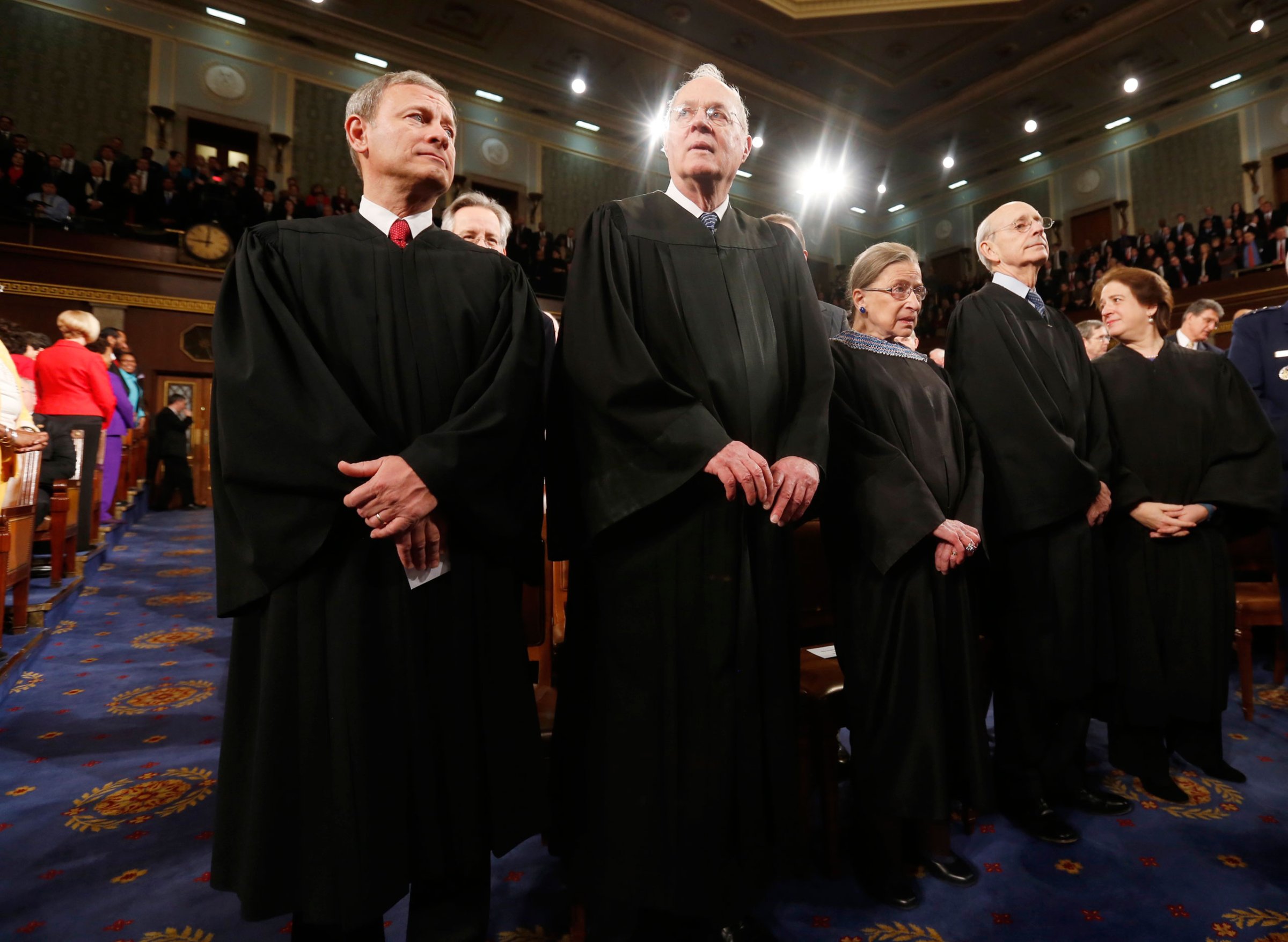
The Supreme Court agreed on Friday to decide once and for all whether all 50 states must allow gay and lesbian couples marry, likely resolving one of the greatest civil rights debates of the 21st century.
The Court will consider four cases that have been consolidated and will be heard together, from Michigan, Ohio, Kentucky and Tennessee. Same-sex marriage is banned in each of those four states, and the U.S. Court of Appeals for the Sixth Circuit upheld those bans in November. That decision will be appealed in front of the Supreme Court.
The high court has been coy in the past about taking up same-sex marriage cases, and the current justices have rarely written individually on the merits of the issue aside from the crucial United States v. Windsor (2013) decision striking down the Defense of Marriage Act (DOMA) in which Justice Kennedy wrote the majority opinion. That said, here are some of the past indications Supreme Court justices have given on the issue.
Justice Anthony Kennedy:
The states that have given gay couples the right to marry “conferred upon them a dignity and status of immense import,” wrote Justice Anthony Kennedy in the landmark United States v. Windsor (2013) ending the federal law (DOMA) that allowed states to refuse to recognize gay marriages granted under the laws of other states.
Kennedy added that DOMA imposed “a disadvantage, a separate status” and “a stigma upon all who enter into same-sex marriages made lawful by the unquestioned authority of the states.” Justices Kagan, Ginsburg, Breyer and Sotomayor joined Kennedy’s decision.
Justice Antonin Scalia
“This case is about power in several respects,” Scalia wrote in his dissenting opinion on the Windsor case, arguing the courts should not decide laws on gay marriage. “It is about the power of our people to govern themselves, and the power of this Court to pronounce the law. Today’s opinion aggrandizes the latter, with the predictable consequence of diminishing the former. We have no power to decide this case.”
Justice Samuel Alito
“Respondent Edith Windsor, supported by the United States, asks this Court to intervene in that debate, and although she couches her argument in different terms, what she seeks is a holding that enshrines in the Constitution a particular understanding of marriage under which the sex of the partners makes no difference,” wrote Alito on the same case, also arguing elected officials should decide on gay marriage, not the courts. “The Constitution, however, does not dictate that choice. It leaves the choice to the people, acting through their elected representatives at both the federal and state levels.”
Justice Ruth Bader Ginsburg
Speaking before an audience in Minnesota last September, Ginsburg marveled at the “remarkable” shift in public opinion on same-sex relationships and marriage. “Having people close to us who say who they are — that made the attitude change in this country,” Ginsburg said, the Associated Press reported.
Chief Justice John Roberts
In the case Hollingsworth v. Perry, Chief Justice Roberts wrote that judicial precedents that courts only answer questions that are “viewed as capable of resolution through the judicial process” are “an essential limit on our power: It ensures that we act as judges, and do not engage in policymaking properly left to elected representatives.” It’s a similar argument to the one Alito and Scalia make in Windsor.
The others
Justices Stephen G. Breyer, Sonia Sotomayor and Clarence Thomas haven’t written separate opinions on gay marriage in cases decided by the Supreme Court, and have kept tight-lipped on the issue in recent years — though the left-leaning Breyer and Sotomayor sided against DOMA in 2013, and Thomas has joined his fellow conservatives in voting that the court shouldn’t rule on gay marriage.
As for Justice Elena Kagan, not only did she vote against DOMA in 2013 but she officiated a same-sex wedding in Maryland for her former law clerk and his husband last September, so it’s pretty clear what side of the issue she stands on.
More Must-Reads from TIME
- Inside Elon Musk’s War on Washington
- Meet the 2025 Women of the Year
- Why Do More Young Adults Have Cancer?
- Colman Domingo Leads With Radical Love
- 11 New Books to Read in Februar
- How to Get Better at Doing Things Alone
- Cecily Strong on Goober the Clown
- Column: The Rise of America’s Broligarchy
Contact us at letters@time.com